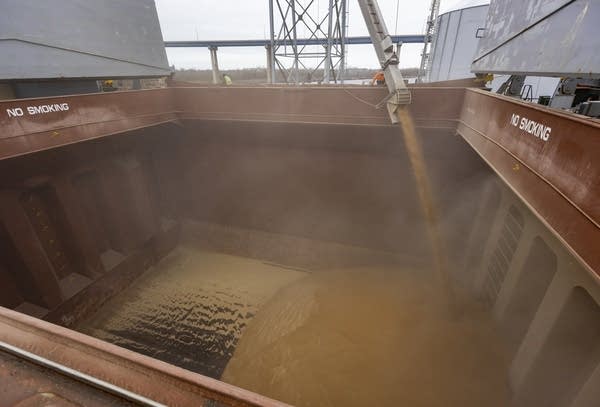What Russia's Black Sea grain blockade could mean for Minnesota

Wheat is loaded into a bulk carrier at the CHS Inc., grain terminal in Superior, Wis. This grain is headed for Algeria, but CHS and other Minnesota agribusiness firms also charter bulk carriers like this to transport grain our of Ukraine. Russia's decision to pull out of a deal to let those ships pass through the Black Sea could disrupt their business and have a ripple effect in Minnesota.
Derek Montgomery for MPR News
Go Deeper.
Create an account or log in to save stories.
Like this?
Thanks for liking this story! We have added it to a list of your favorite stories.


